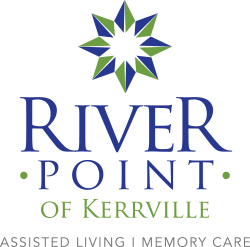The mismanagement of a parent’s care leads to dire circumstances where the parent wanders off and becomes lost. News stories throughout the country report incidents when parents with dementia left their family home and became disoriented, and some of these stories don’t end well.
When approaching care decisions for a parent, families weigh the advantages and disadvantages of both assisted living and at-home care. The decision about their care must be based on the individual’s full healthcare needs, especially when they are unable to care for themselves.
Does the Senior Need Long-Term Care?
Long-term disability insurance covers at-home care for a period between five to ten years. If the parent doesn’t need ongoing care after this time, assisted living in Kerrville, TX isn’t necessary. However, if the family knows that the senior is unable to take care of themselves without assistance once the insurance coverage runs out, the family faces the full cost of the at-home nurse. An assisted living environment is more helpful in these circumstances.
The prognosis of the senior’s condition is the factor that guides the family. If their loved one has any form of dementia, short-term care won’t manage all their health requirements.
Has the Senior Been Diagnosed With Dementia?
Once a parent is diagnosed with dementia, adult children must work with their parents to manage the needed care. Family members get a power of attorney, become the senior’s healthcare proxy, or become the parent’s guardian.
In the early stages of dementia, the person is still lucid and able to make decisions on their own. However, the family must create a plan for the time a parent is no longer able to care for themselves and needs around-the-clock nursing. A memory care community is a great choice for seniors with dementia.
Has the Elderly Loved One Wandered Off Before?
At-home nurses are aware that seniors with dementia are likely to leave the property and wander off. The nurses must set up equipment in the home to stop the senior from going outside alone. Unfortunately, in later stages, the client could overpower the nurse and escape the home.
Under the circumstances, at-home nursing wouldn’t just be a bad decision but could place the parent and the nurse in danger. In assisted living with memory care, there is a full nursing staff to help the resident, and individuals with dementia live within a secured wing of the community.
How Many Hours of Care Does the Senior Need?
The standard shift for at-home nurses is limited to six to eight hours. The services are best for someone who just needs help with getting around and performing activities of daily life. If the person needs more assistance, the family would need to stay with the loved one after the nursing shift.
Independent seniors often get at-home care, but individuals who have declining cognitive function need a nurse to stay with them around the clock. The comparison in the costs for the services shows that at-home care is affordable for parties that just need a nurse for a short time each day. However, the cost of 24-hour care in the home is far more than moving the loved one into assisted living.
What Services Are Available to the Client?
At-home care includes assistance with ADLs, simple meal preparation, light housekeeping, and assistance with mobility challenges. Some home care nurses take the client to doctor’s appointments and may grocery shop for the senior.
In an assisted living environment, the resident has help with ADLs, access to memory care services, meal preparation for all three meals, and access to transportation services for medical appointments. The communities host monthly events to encourage everyone to socialize and avoid isolation.
How Is the Senior Paying for Their Care?
Health insurance such as Medicaid and Medicare pay for some of the costs of an at-home nurse. Seniors have policies such as short- or long-term disability insurance that offer coverage for a limited time. Once all the coverage has been exhausted, the senior pays for care out of their Social Security retirement benefits or from their retirement fund.
Assisted living requires one fee for all services, and the senior receives housing in addition to healthcare services.
The Perfect Home for Your Parent
At River Point of Kerrville, our community gives families and seniors peace of mind, and we offer safer homes for their elderly parents. Our staff provides services including memory care that helps residents improve cognitive function and enjoy a better quality of life. Trying to find a home for your parent? Schedule a tour with us today.






